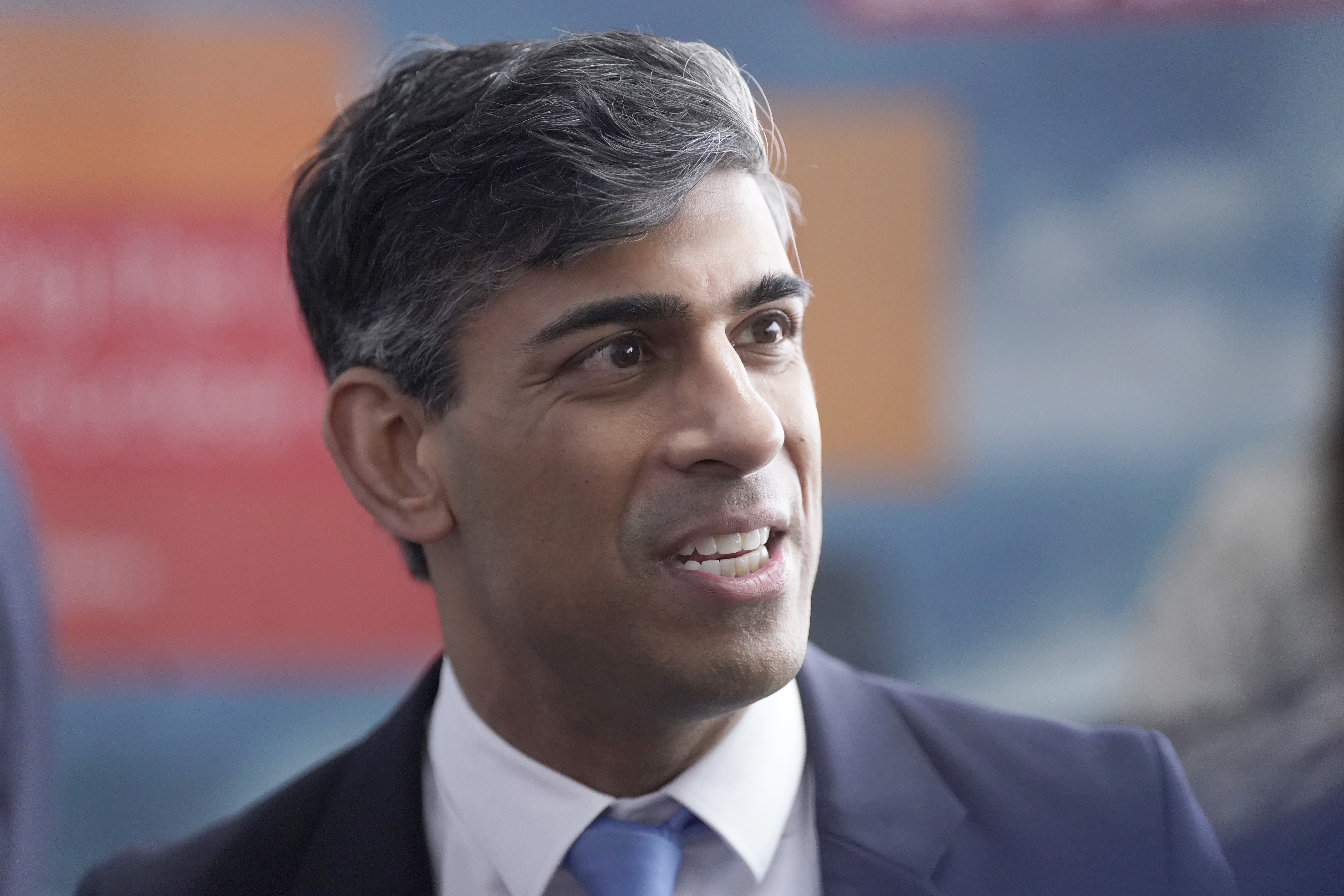Is Rishi Sunak really prepared to take Britain out of the European Convention on Human Rights?
The prime minister has hinted that he might be willing to renounce membership of the hallowed European court and the convention it oversees. But would he really do it, asks Sean O’Grady – and even if he did, could it help recover his party’s fortunes before the coming election?


In a subtle but arguably significant change in policy, Rishi Sunak has hinted that he would, if need be, lead the UK out of the 1951 European Convention on Human Rights if that’s what it takes to stop the small boats. He said: “I do believe that border security and making sure that we can control illegal migration is more important than membership of a foreign court because it’s fundamental to our sovereignty as a country.”
His announcement was made on The Sun’s Never Mind the Ballots podcast and has attracted some praise from Conservative MPs, but there may be less to the statement than meets the eye...
Why has Sunak said this?
One cynical reason could be that he knows his leadership, even at this late stage in the current parliament, is being discussed by the right of the party. As a result, there are periodic rumours that he’s about to be replaced in some sort of coup or other by the likes of Penny Mordaunt or, the latest gossip suggests, Priti Patel.
Usually these die down, but trouble could flare at any time, and one obvious danger point will be the panoply of elections to be held across England and Wales on 2 May – encompassing votes for councils, mayors and police commissioners along with a parliamentary by-election in Blackpool South. The results will be disastrous, and panic will set in. A suitably tough line on migration might stem the loss of Tory votes to Reform UK, both in May and at the general election.
Doesn’t policy have anything to do with it?
It does, and what’s most interesting about what Sunak said is that it’s the first time he’s acknowledged, in effect, that membership of the convention and its associate court is not necessarily compatible with his Rwanda plan to “stop the boats”. Previously he has chosen not to confront what many of his colleagues, and others, agree is a simple matter of logic.
It’s not a ‘foreign court’ though, is it?
No. This is one piece of Sunakian legerdemain that the prime minister persists with, though he must know it is misleading. The European Court of Human Rights, which arbitrates on cases referred to it under the convention, is an international court, with judges drawn from across Europe, including the UK. There is also a parliamentary assembly that oversees the court’s activities, in which the UK is represented. Some deride the quality of the judges seconded from member states to sit on the court, but they are judges all the same.
The court is based in Strasbourg but, despite that and its name, it is quite separate from the European Union and from the Court of Justice of the European Union (which is more of a supranational institution).
Could the UK leave?
It’s perfectly possible, indeed straightforward, for even a founding member that helped to draft the very treaty upon which the convention is founded, to withdraw, with six months’ notice, under Article 58 of the convention. That, though, would actually take us past the likely date of the general election and the probable end of Sunak’s premiership, even if he acted now, which he won’t.
But there must be snags?
A few. Internationally, particularly in Washington and the EU, it would be regarded as a deeply retrograde step, and a signal that the UK’s slow slide into populist authoritarianism was gathering pace. Adherence to the convention is also a key part of the Good Friday Agreement and the EU-UK trade and cooperation agreement (ie the Brexit deal).

An extreme optimist might argue that our respective partners in these binding treaties, from Sinn Fein to Emmanuel Macron, would be accommodating and helpful in making the necessary adjustments. The rest of us might foresee lengthy negotiations that would, once again, stretch beyond Sunak’s likely term of office.
So it’s all tokenistic ‘virtue signalling’?
Or “vice signalling”, if you’re that way inclined. For all practical purposes, Sunak’s pledge, such as it is, can’t be implemented, because time has run out. But it’s also a dead letter because many on the centre and left of his party oppose it, and he has no mandate to carry out such a radical move – neither withdrawal from the convention nor the Rwanda plan was mentioned in the 2019 Conservative manifesto.
What could he do instead?
The one very live option would be to include some sort of commitment in the manifesto for this year’s election – though anything Sunak commits to would split the party. He could either commit to leaving the convention, no ifs, no buts; promise a national referendum on the issue, with all the trauma that would bring; offer a “review” of the court’s workings and suitable legislation to curb its authority (which would be illogical and unconstitutional); or say nowt, which would disappoint the right.
Asked about a manifesto promise in his latest interview, Sunak dodged the question.
Why has Sunak fixated on the Rwanda plan anyway?
Prime ministers sometimes get fixated on issues that they then turn into a test of their premiership. If they are shrewd, and lucky, then they will conquer the hill they decide to fight on and emerge happy and glorious. If they are less fortunate, then the battle will essentially be unwinnable, and their leadership will be defined by a symbolic failure entirely of their own making.
It is doubly odd in this case because we know Sunak wasn’t attracted to the Rwanda scheme either as chancellor or as a leadership candidate in 2022. It was, in fact, a stunt dreamt up by the then prime minister Boris Johnson and Patel when she was home secretary, and was merely inherited by Sunak via Liz Truss.
Sunak could easily have slid away from the commitment long ago, blaming the courts and the House of Lords, and promised to seek a mandate for change at the general election. It may just be that Sunak is a rather stubborn, frustrated man who hates losing and can’t take no for an answer. At any rate, this signal failure may end up being Sunak’s political epitaph, just as “Suez” was for Anthony Eden and “Winter of Discontent” was for Jim Callaghan.
Join our commenting forum
Join thought-provoking conversations, follow other Independent readers and see their replies
Comments
Bookmark popover
Removed from bookmarks